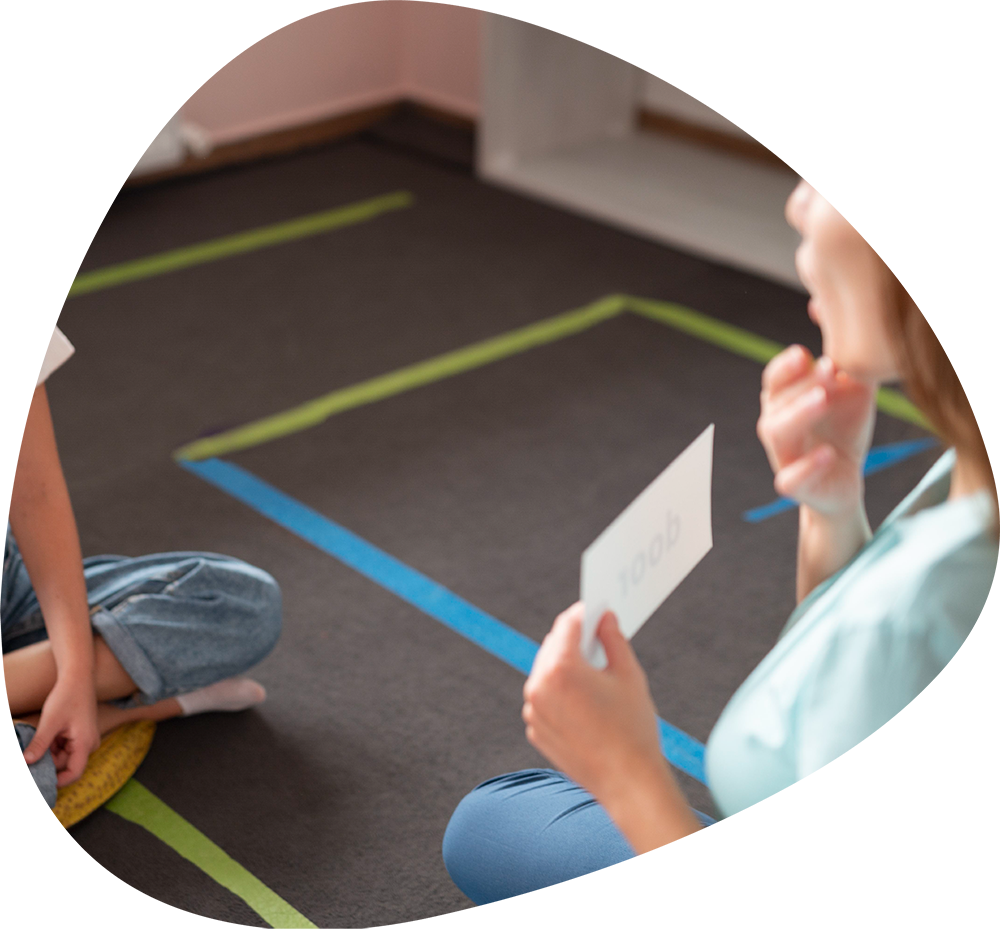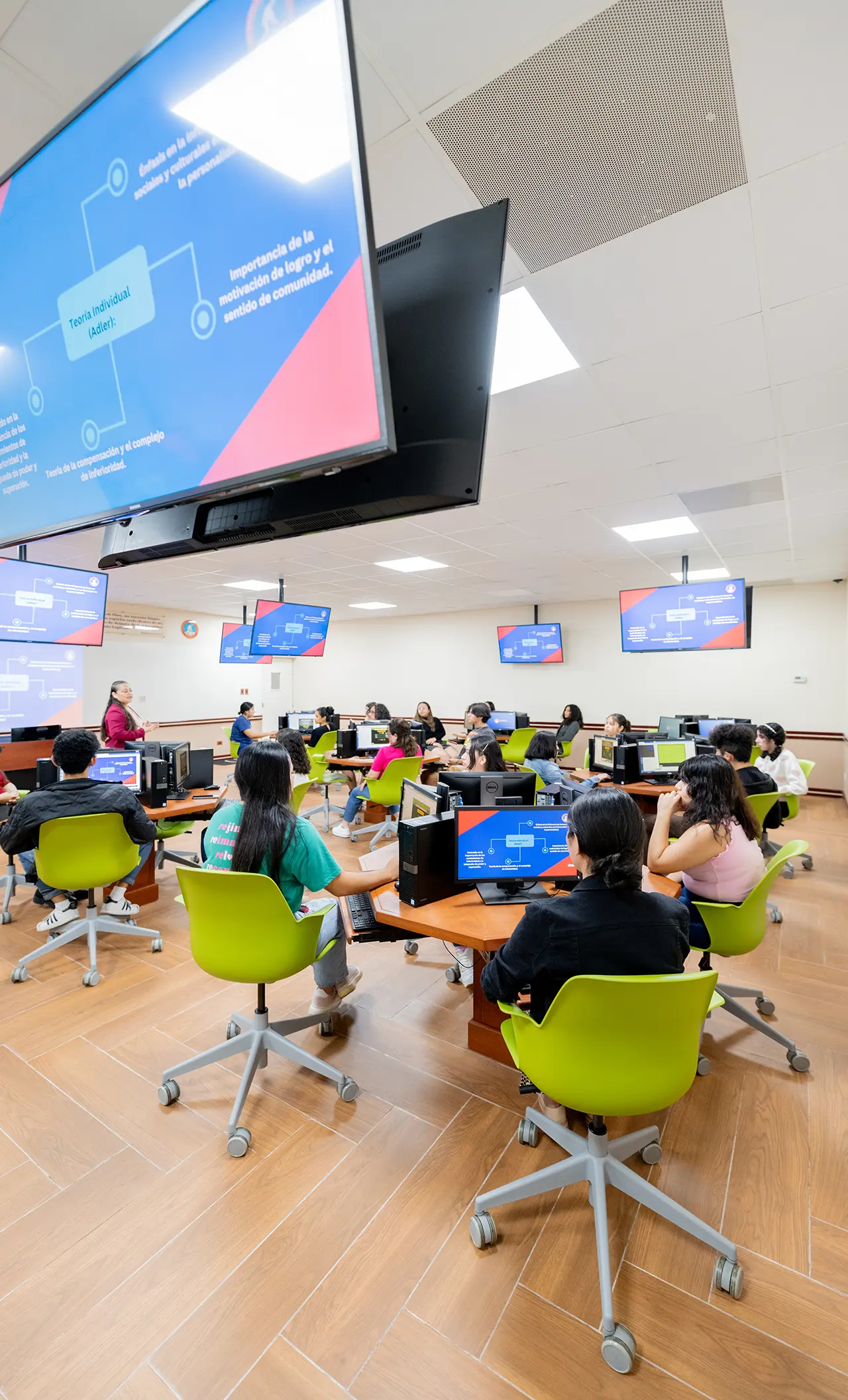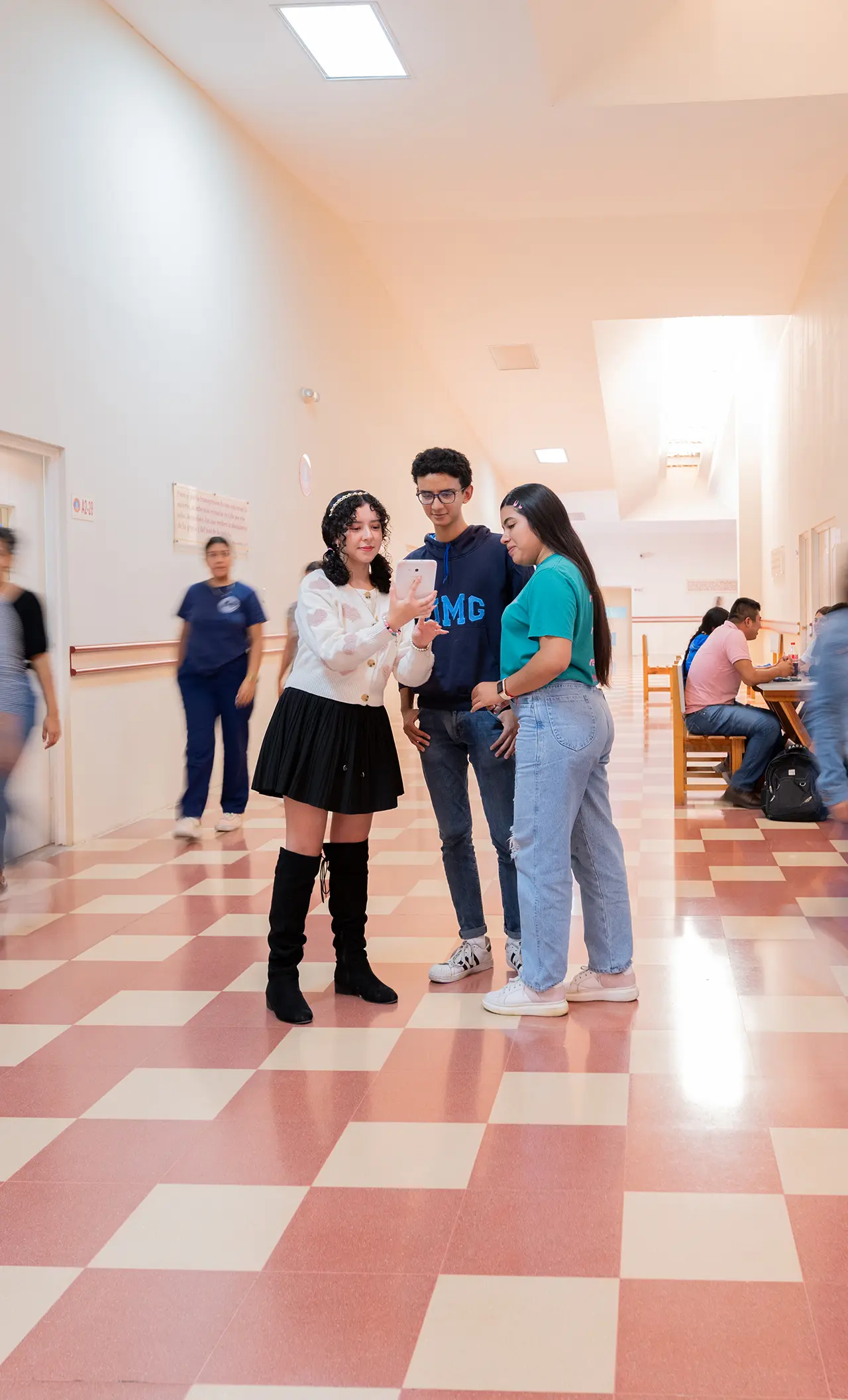
- Bachelor's Degree in
- Educational Psychology
- Degree to be obtained
- Bachelor's Degree in Educational Psychology
- Academic degree
- Bachelor's Degree
- Duration
- 5 years
- Modality
- on-site
- Schedule:
- Weekdays and Saturday session
- Career description
-
The Bachelor's Degree in Educational Psychology is acquired through the completion of 50 courses, divided into 5 years, in each year there are two cycles, which have 5 courses each.
Every cycle has 14 two-hour sessions on Saturdays. Every Saturday there will be 5 courses, which will be passed with a 61-point weighting.
- What will you learn during the program?
-
Students will learn to:
Identify the main neurodevelopmental disorders and be able to intervene them in a holistic way.
Value the need for the appropriate comprehensive psychological treatment and intervention (family, institution, individual).
Create and apply therapeutic plans according to the needs and characteristics of the individuals, based on their socio-cultural background.
Consciously and intentionally expand their professional knowledge based on updated and state-of-the-art techniques.
Gallery
AdmissionProfile
They are students graduated from high school.
Are interested in the intervention in the teaching-learning processes and the emotional implication of the different stakeholders (teachers, students and families).
Graduate'sProfile
The graduate professionals of the Educational Psychology program are specialists in the approach of children with academic performance problems, as well as in vocational and parental guidance. They are able to intervene in the learning processes of human beings, by applying their knowledge of human development and the teaching-learning acquisition in different environments.
Career Opportunities

Educational Psychology graduates can perform their professional work in educational institutions, both public and private, at any educational level.
They are experts in human behavior linked to the teaching-learning process, in the vocational field, academic performance evaluation and in the early detection of mental health disorders. They can apply to positions in the areas of Psychology in the educational fields in general.
Curriculum
| 1° Ciclo | BIOLOGIA HUMANA | DESARROLLO HUMANO Y PROFESIONAL | FILOSOFÍA | SOCIOLOGÍA GENERAL | |
|---|---|---|---|---|---|
| 2° Ciclo | ANTROPOLOGIA GENERAL | LOGICA FORMAL | METODOLOGIA DE LA INVESTIGACIÓN | PSICOLOGÍA GENERAL | |
| 3° Ciclo | ANATOMIA Y FISIOLOGIA DEL SISTEMA NERVIOSO | ESTADÍSTICA FUNDAMENTAL | PSICOLOGÍA EVOLUTIVA DEL NIÑO Y DEL ADOLESCENTE | SEMIOLOGIA PSICOLOGICA | |
| 4° Ciclo | ESTADÍSTICA APLICADA A LA PSICOLOGÍA | PSICOLOGÍA EVOLUTIVA DEL ADULTO | PSICOMETRIA I | TEORIAS DE LA PERSONALIDAD | |
| 5° Ciclo | NEUROFISIOLOGIA | PSICOLOGÍA DEL DEPORTE Y LA RECREACION | PSICOLOGÍA SOCIAL | PSICOMETRIA II | |
| 6° Ciclo | FUNDAMENTOS DE INFORMÁTICA | INTRODUCCION A LA PSICOLOGÍA FORENSE | INTRODUCCION A LA PSICOLOGÍA INDUSTRIAL/ORGANIZACIONAL | PSICOLOGÍA CLINICA | |
| 7° Ciclo | ABORDAJE A LAS NECESIDADES EDUCATIVAS ESPECIALES | NEUROPSICOFISIOLOGIA DEL APRENDIZAJE | PSICOLOGÍA EDUCATIVA DEL NIÑO | TÉCNICAS DE ENTREVISTA Y DIAGNOSTICOS PSICOEDUCATIVOS | TEORIAS DEL APRENDIZAJE |
| 8° Ciclo | ESTADÍSTICA APLICADA A LA PSICOLOGÍA EDUCATIVA | PROCESOS DE EVALUACIÓN PSICOPEDAGOGICA | PROGRAMAS Y PROYECTOS PSICOEDUCATIVOS | PSICOLOGÍA EDUCATIVA DEL ADOLESCENTE | PSICOMETRIA APLICADA A LA PSICOLOGÍA EDUCATIVA |
| 9° Ciclo | INTELIGENCIA EMOCIONAL PSICOEDUCATIVA | LEGISLACION EDUCATIVA | PRACTICA PSICOEDUCATIVA CON NIÑOS Y PADRES DE FAMILIA | TÉCNICAS TERAPEUTICAS APLICADAS A LA PSICOLOGÍA EDUCATIVA | TRABAJO DE GRADUACIÓN I |
| 10° Ciclo | CONSEJERIA Y ORIENTACION VOCACIONAL | PRACTICA PSICOEDUCATIVA CON ADOLESCENTES Y PADRES DE FAMILIA | TÉCNICAS DE COMUNICACION Y RESOLUCION DE CONFLICTOS EDUC. | TÉCNICAS DE MOTIVACION PSICOEDUCATIVAS | TRABAJO DE GRADUACIÓN II |


